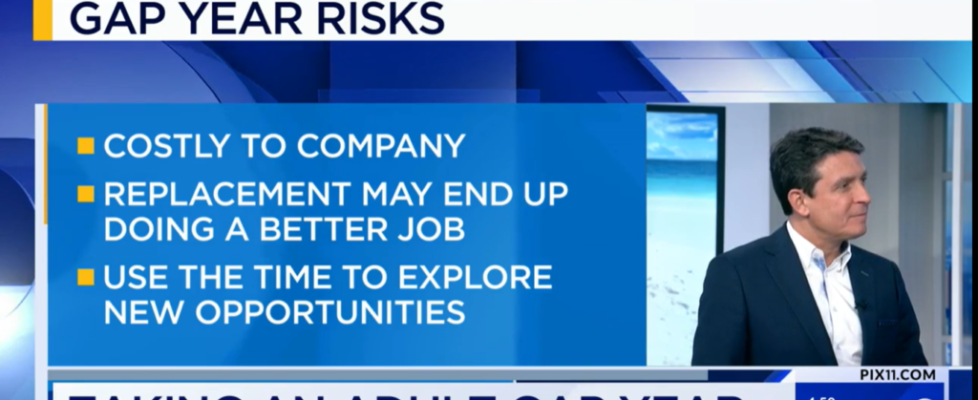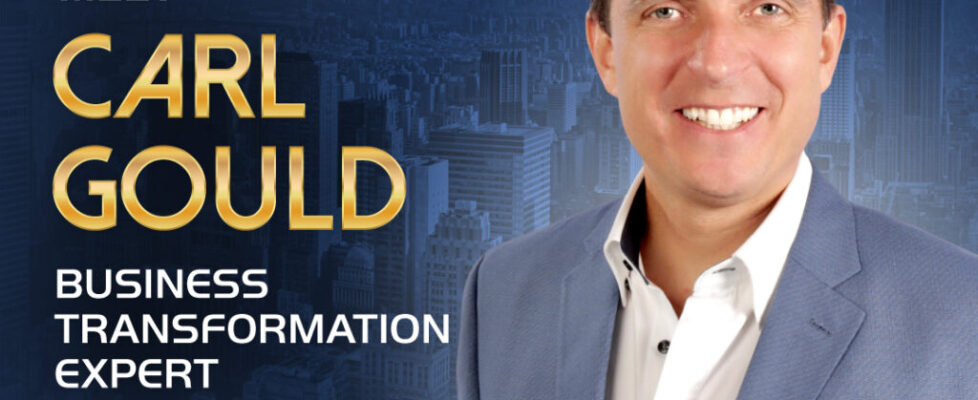Carl L Gould

















Will AI soon be making all hiring decisions?
We get a look from Business Advisor Carl Gould. Listen here:





















Carl Speaks to Long Island’s #1 Internet Radio Station WLINY on Business Owner’s Point of View on NFL and Player Protest
Have you thought about how the player protest in the NFL affects the team owner? Does the protesting really affect the game?
Carl Gould – 6 Skills Everyone Can Learn Online to Make Progress in Their Career
Starting and running a business requires many things and having certain skills is definitely one of the things that you should put your focus on in this 2017. Lack of skills is one of the main reasons why people are not making progress in their careers. Skill gaps often lead to lower customer satisfaction, delays in product presentation, and many other problems. The same goes for those running a business. The good news is that acquiring skills today is much simpler than 10 or 50 years ago. Namely, you can now learn a wide range of skills online. However, if you just plan on running the business, there might not be a need for you to have specific skills like these. For many business owners, they will look to hire people with these specific skills that will be needed for the job. When hiring people to your business, they will probably need a device to ensure they can complete work to a higher standard. As the manager of this business, it’s important for you to oversee all operations. With the help of https://www.fleetsmith.com/features/management, you can configure these devices exactly how you want them. This should increase business efficiency and productivity. However, if you are passionate about learning new skills as well, then you should do it. You can never have too many skills as a business entrepreneur. There is no doubt that this practice is convenient, flexible, provides comfort, and lets people get a new perspective on business. The following is a shortlist of 6 skills everyone can learn online for a productive and profitable 2017.
1. Statistical data analysis
This might sound like something very complicated, but once you start learning it online, you will see that you were wrong. Besides business owners, students can benefit from acquiring this skill too. There are many software solutions for this type of analysis and it is up to you to master these programs. In this way, you can make better market shares predictions, analyze profit tendencies, and do other things that will improve productivity.
2.Web design
Now here’s another skill that is great for business. As you are probably aware, almost every modern business is looking for a way to be presented online and websites are still the most wanted form of presentation on the World Wide Web. There are many websites that provide online courses and tutorials that can help you become a good web designer. (2)
3. Fashion design
This might not be the favorite choice for everyone, but the truth is that this skill can help you make this year more profitable and more productive. Clothes are one of the basic items in the lives of almost every individual. This means that people will always buy clothes. Use online videos found on video-sharing websites and websites where you can get step-by-step guides related to fashion design and how to draw the perfect piece of clothing.
4.Business research
Business research is a broad term which usually involves things like researching a few businesses in one industry or researching the structure of business for investments or presentation. If you conduct some research you will notice that there are many online articles and videos related to business research that can help you.
5.Make-up skill
Did you know that this is one of the fastest-growing businesses today? If you are prepared to start a new business, you might take this skill into account. Obviously, the best way to master this skill is to watch videos and to visit websites that have articles with many how-to images.
6.Run a blog
Finally, it’s a smart move to master the art of creating and running a blog. With the help of a blog, you can showcase your work and skills and establish yourself as an authority. Choose the form of your blog and the things you share on this blog wisely.
Follow these timeless tips for acquiring useful skills over the Internet for a successful 2017.
- https://hbr.org/2012/02/how-employers-can-help-solve-t
- http://justcreative.com/2015/07/02/10-best-free-online-courses-for-web-designers/
Carl Gould – Celebrity Endorsements
Celebrities are rarely off the field as good as they are on the field there are some rare exceptions as they mentioned in the article, but as a business celebrity endorsements are very challenging. There are most useful for a brand in the early going to help build credibility and a line with the company’s goals and values. On a long-term basis though, the same celebrity that help you grow the business Will Poulter as all humans do, and you need to make sure that their discussions or mistakes will not be damaging to your company. Also, companies need to make sure that they don’t overreact when it comes to there celebrity endorsers mistakes. There are some times when you can stick by your celebrity endorser but beware as in the case of our Olympian, he did make a big mistake, and although he is remorseful about it, there are some lessons that need to come out of it. Hopefully, the brands that endorse Ryan can use this as a learning opportunity for their customers to show how one person can make a mistake, but how they overcome that mistake and not just by being the person in obscurity until everybody has forgotten about the discretion. The fragile relationship between celebrities and businesses continue 🙂
http://www.businessinsider.com/celebrity-endorsements-can-be-dangerous-2016-8
Carl Gould – Needing to Pivot
The situation in Puerto Rico is dire, but not unique nor uncommon. We are seeing some of the same challenges in eastern European countries. What Puerto Rico needs is a pivot. I disagree that this change and the new legislation will take years to take effect. If you were to announce entrepreneurial benefits to this new program, business owners would jump in immediately. There would be no lag! With the stronger dollar, business process outsourcing, call center services, manufacturing, administrative virtual assistance, and other support functions would happen almost immediately. Lowering the minimum wage is one step, and a tough one, that was necessary so businesses have lower costs to operate. Investment in the Commonwealth as well as consumption will increase quickly if the incentives are there for the business community to do so. Legislation is not enough, let’s put the incentives in there to compel business owners to invest in the Commonwealth. That will in turn lead to further investment domestically.
Carl Gould – Business Plan
Writing a business plan is essential, and highly recommended. Why? In the 7 Stages of Business Success (www.The7StagesOfSmallBusinessSuccess.com) , Stage 1 is titled strategic planning… where you get your great ideas out of your head and onto paper. However, it is not enough to share what you are doing… and what you intend to do in your business. The implication of your strategic planning is that it is compelling and inspiring. You need to compel the marketplace to partner with you, and your business plan must inspire others to want to work for you. The HOW of what you do and the WHY of what you do …matter. The HOW is your approach to business, your differentiator and what makes you better. Your WHY is important because it will articulate what impact you are going to have on the world beyond just your product and service. Does your strategic planning answer these two questions?… 1. Why would somebody move from their current location to work for you; and be willing to do it at a discount? …. 2. Why would a consumer choose to leave their current provider, and be willing to purchase from me and pay a premium? If you can answer those 2 questions successfully in your strategic planning documents, then you have created an inspiring and compelling business plan!
http://skillinfinity.com/start-up/resource/7-basics-of-writing-a-successful-business-plan-for-startups-entrepreneurs

Carl Gould – Oil and Gas Industry
When are they going to realized that you cannot manipulate the market forever? The Middle East dominance of the oil Market has come to an end… they are (understandably) desperately trying to hold on to their market share. Manufacturers all around the world have found more efficient ways to consume oil, and other alternatives fuel sources to the point that oil reserves are not nearly as important as they once were. Every business faces this dilemma (if it’s lucky!) when a brand or a product moves beyond the peak of its life cycle, or the patent expires, or its significant competitive advantage is removed. If you are a business that is in anyway related to the oil and gas industry, there is a new paradigm. You no longer have a license to print money… you’ll now have to go out and fight for your customers, and, like the rest of us!















 http://www.talklaunch.net/6277/carl-gould-biz-dev-done-right/
http://www.talklaunch.net/6277/carl-gould-biz-dev-done-right/